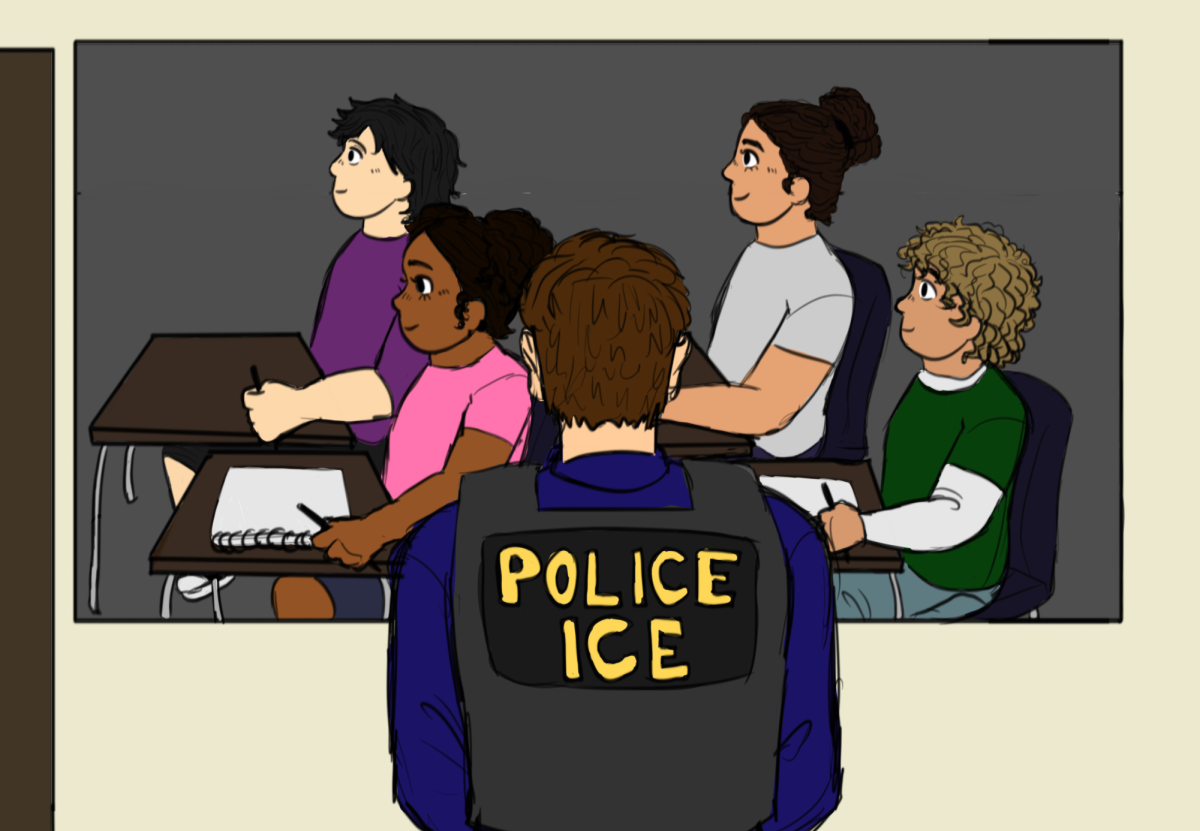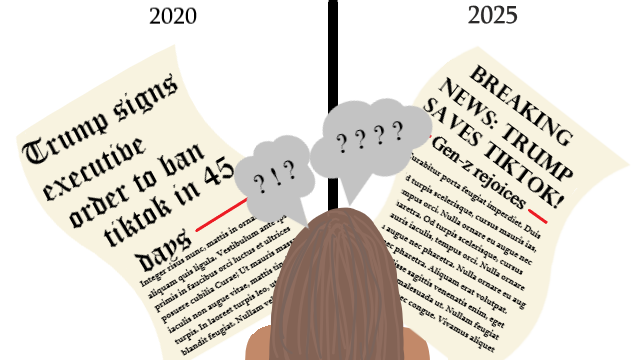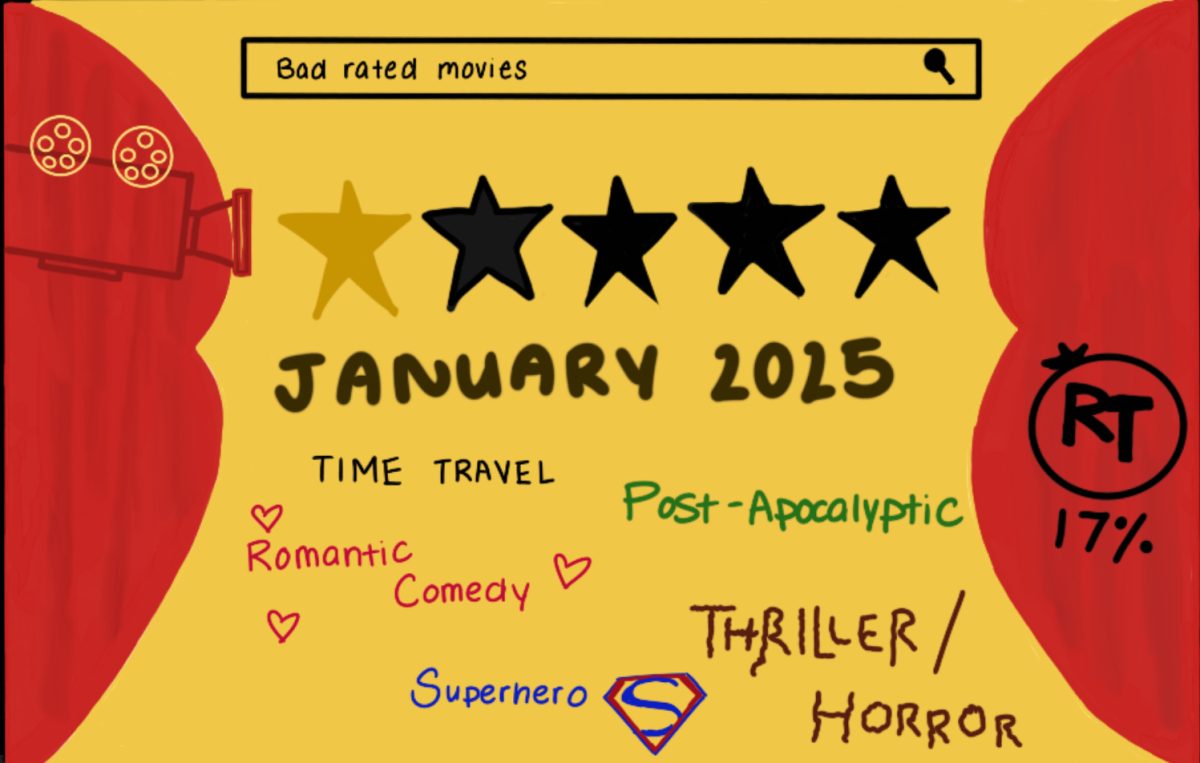The Crusader encourages community dialogue on public matters. Letters submitted to the Crusader may be edited prior to publication and must include a full name and class grade. Please email letters to either Opinion Editor, Antoinette Gilbert (agilbert12@sweetwaterschools.net) or Paula Pichay (ppichay@sweetwaterschools.net) or visit www.bonitavistacrusader.org to view additional letters.

Dear Editor,
I recently read the article “Yes/No: Is boycotting an effective form of protest” by Kendall Johnson and Isaiah Nafarrete which speaks about the Israeli and Palestinian conflict. I like how informative it is, giving information on both sides when boycotting companies who support war. It’s important to shed light on this topic because it helps people understand what’s going on in the world. I also noted how there were no biased arguments in the article and kept it civil by just discussing boycotting and its pros and cons surrounding it. Boycotting is important because it empowers individuals to take a stand against companies that engage in unethical or harmful practices, it brings social justice to the awareness that they are trying to spread which I liked when they emphasized using examples such as the Mitsubishi boycott and Nestle boycott which overall can be effective in the long run.
Sincerely,
Anaissa Escandon
Dear Editor,
I read your article “Eternal Sunshine” by Amanda Cortes, a song by the artist Ariana Grande. The article caught my attention since Ariana Grande is one of my favorite artists and her return was unexpected with her new pop style in the industry. The way you explain any song of the album and the message that song got about the letter. Discussing how the artist brought a big change with her song and all that comments of the songs that it wasn’t her in her song. Reading the article, her new songs are based on her divorce and it is true can feel that type of feeling through her new album, moving more attention on the meaning than on the music. Another important point is Not all of us have the same musical styles, maybe not many enjoyed her return with these new songs but they are good and we should not put those songs aside and only focus on the most famous song. Thank you for the article for providing me with helpful information.
Sincerely,
Rebeca Munoz
Dear Editor,
The article that I chose to read was “Beyond the cafeteria” by Paula Pichay. This article really caught my attention because I have ordered food to school before. Although our school provides us food, sometimes it doesn’t taste good or it’s not enough. I agree with the author, they say that “Students may not enjoy some of the free school lunch meals.” I don’t think that it should be up to the school whether we buy food or eat the school food. I don’t think it matters because not everybody can afford to order food so there will always be students getting school food. I do not see any harm in getting food, sometimes the school lunch is nasty. In my opinion it is dry and unhealthy. I think if deliveries are an issue due to interrupting class then they should specifically only allow it for nutrition break or lunch. There are times when I don’t even eat at school because the food looks so bad and we can no longer order food to the school.
Sincerely,
Amy Sanamyan
Dear Editor,
I read “A closed campus is a safe campus’ ‘ by Sophia Calderon in the story. It talked about how back then there weren’t as many gates and Bonita was an open campus. From what I gathered Mr. Scheemann believed that even though seniors got treated like adults back then opposed to now, there were a lot of other things such as violence and drugs were easily brought into the school. Mr. Romero also stated a similar statement saying that there was a smaller student population and how students would go off campus and drive in unsafe ways. I believe that there could be some benefits to having an open campus, such as students having a little bit more freedom. But having freedom could come at a cost. For example, it can lead to students doing irresponsible things. Also, as stated in the story, now that there are businesses around us, the more students there are after school right now how many more students there would be if there was an open campus. I would say that having a closed campus might be better, just because of the issues it could cause.
Sincerely,
Angelica Paredes
Dear Editor,
As I read the article, “staff editorial: An urgent cry for reproductive rights” on the “crusaders”, I’ve felt very disappointed to read that they are doing more to restrict the rights of women and what they want to do with their bodies. There are many women who are unable to conceive like other women, so IVF is the best and safest option for reproduction. I agree with the author when they wrote “It is pressing for state leaders to understand the detrimental impacts women will face when declaring or ruling an issue revolving around women’s reproductive rights.” The IVF treatment has helped build so many families so I don’t understand why they would restrict it in Alabama. I wholeheartedly agree when the author said it is ironic “for a country that attempts to uphold liberty and justice for all. Is society regressing into a controversial, unsafe and discontent environment for millions of women.” I believe that women have a right to be able to control their own bodies. I would like to thank the author and the editor for acknowledging and bringing light into this issue. More people should be aware of this issue and this article did a wonderful job in helping.
Sincerely,
Angel Ong
Dear Editor,
I read the article “Yes/No: Is boycotting an effective form of protest?” by Kendall Johnson and Isaiah Nafarrete. Personally, this topic has been the subject of interest among many people, not unlike myself, that denounce and are against the bombing of Gaza being enacted by Israel. Although the “No” column explained the consumerist tendency people show toward the purchasing of McDonald’s and Starbucks products, I think that the decision of whether or not to boycott serves as a display of moral backbone. As organic boycott targets that are more direct and concern everyday life, people have the individual choice to boycott and has already caused McDonald’s to stop providing meals to the IDF and pull out of Israel-occupied Palestine. While the other point of the “No” column is that boycotting a company like Amazon is difficult for the common folk, the official Divestment, Sanctions (BDS) movement list categorizes huge corporations like Amazon or Disney pressure targets, which calls not for direct boycotting, but for pressuring via social media, lobbying or peaceful disruptions since most of these enterprises are large global monopolies that are impossible to boycott since they own numerous companies and have such a large presence.
Sincerely,
Mac Alonzo





